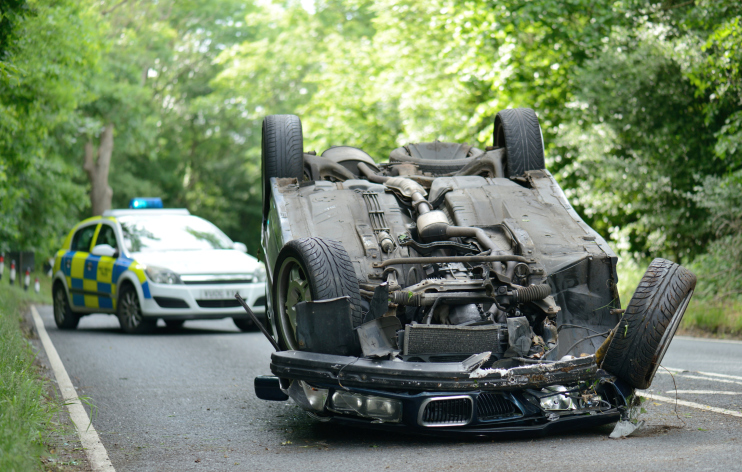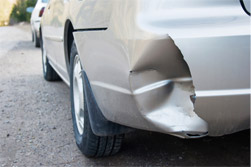When looking for auto insurance, your insurer may classify you as a non-standard policyholder. What is this term? What makes you a non-standard driver?
Non-standard auto insurance applies to certain drivers who are riskier to insure. Different companies classify different drivers as non-standard. Some companies may not insure them at all.
If you find out that you’re a non-standard driver, talk to one of our auto insurance agents. They can help you determine why you fall into this category, and determine the best way to insure you. With the right attention, you can hit the road knowing that you have the right coverage.
What is Non-Standard Insurance?
There is no concrete definition for non-standard auto coverage. Most companies classify non-standard policyholders as those who are the riskiest to insure.
Because these drivers come with higher risks, companies account for those risks when insuring them. Companies likely cannot insure non-standard drivers at the standard market rates for insurance. Non-standard drivers may pay more for their coverage because of their unique risks.
Different auto insurers consider drivers non-standard for a variety of reasons. A driver might become non-standard because of their driving record, age, vehicle or other factors.
Choose an insurance company that will insure you for any non-standard risks. There are many fairly common reasons that a driver might qualify as non-standard. Your insurance agent can help you choose the correct policy for your needs.
Coverage for New Drivers
When someone begins to drive for the first time, they don’t have the experience of a seasoned driver. For that reason, new drivers are often considered non-standard policyholders.
New drivers usually pose a relatively high cost risk to their insurers. Insurers may recommend that new drivers buy higher levels of insurance coverage in the beginning. This helps to better cover the insured’s cost risks. These factors might make new drivers have to pay higher costs for coverage.
The good news is that new drivers can often reduce their coverage limits over time. Furthermore, as drivers gain more experience, their risk level usually drops. As risks drop, you might be able to reduce your coverage levels, and therefore pay less for coverage.
High-Risk Drivers
Experience driving makes drivers safer and more attentive to their on-road risks. However, some drivers continue to make mistakes. If you continually commit driving infractions, you may tarnish your driving record. Frequent accidents, tickets or other violations will often stay on your driving record for a few years.
Insurance companies have access to most of their policyholders’ driving records. If insurers see your driving record gain citations, they might classify you as a high-risk driver. High-risk drivers often qualify as non-standard drivers. Therefore, you might pay more for insurance the higher risk you pose to insurers.
SR-22 Insurance
Your state may require you to get an SR-22 certificate for a variety of driving infractions. These include DUI/DWI charges, multiple tickets, or frequent accidents. Therefore, SR-22 insurance usually falls under both non-standard and high-risk insurance coverage.
SR-22s are not insurance policies themselves. They are certificates that classify you as a high-risk driver. They verify for your state’s authorities that you carry adequate auto insurance. You may have to carry the SR-22 for a couple of years. You must carry continuous auto insurance coverage while you have the citation.
SR-22s may cause your auto insurance rates to rise. You may even have to change policies because your existing policy may not cover SR-22 risks. Therefore, you might expect to pay more for coverage with an SR-22 policy.
After an SR-22 comes off your record, you might see a chance to reclassify yourself as a standard driver. This could help lower your insurance rates.
Non-Standard Vehicle Coverage
Sometimes, the car you drive can classify you as a non-standard driver.
An old car that you take to car shows often has a lot of value attached to it. The same goes for an extremely expensive, custom-made vehicle like a Lamborghini. Antique, valuable or specialty cars often need unique coverage levels. This is perhaps because of their age, design or operational risks.
Furthermore, high-risk vehicles don’t have to be the most valuable. For example, salvage-title cars are those that were previously damaged and considered a total loss. Though you might have repaired this vehicle, it still has major damage in its past. This makes its operation quite risky.
Whether new, old or repaired, you vehicle might contain risks that make it riskier to insure. For that reason, your auto insurance provider may need to issue a non-standard policy.
Affording Non-standard Coverage
Even if you have to pay more for a non-standard policy, there are ways you can control your costs.
Drivers might be able to save on coverage if they qualify for discounts from their insurer. Multiple insurers offer a variety of discounts like accident-free or safe-driver discounts.
Safe driving and attention to your car could help you become less risky in the eyes of your insurance. They might reduce your rates the longer you go without an infraction.
We’ve got you covered. Call Amigo Insurance Agency, Inc at 877-999-2644 to get a free quote on Chicago auto insurance.



